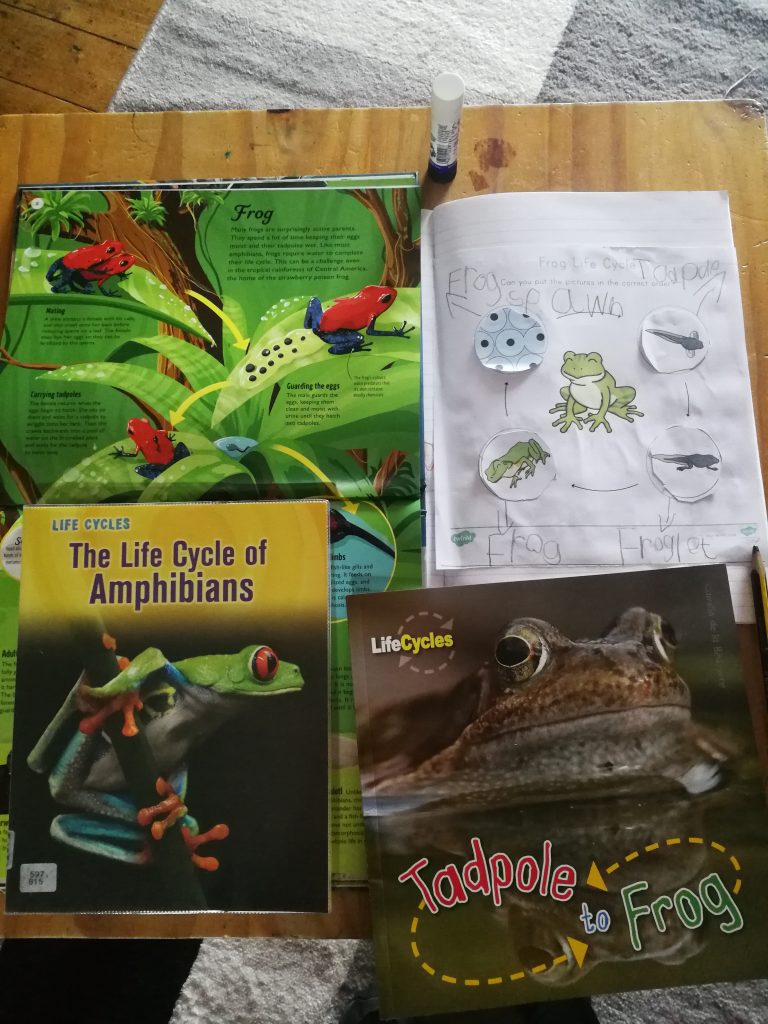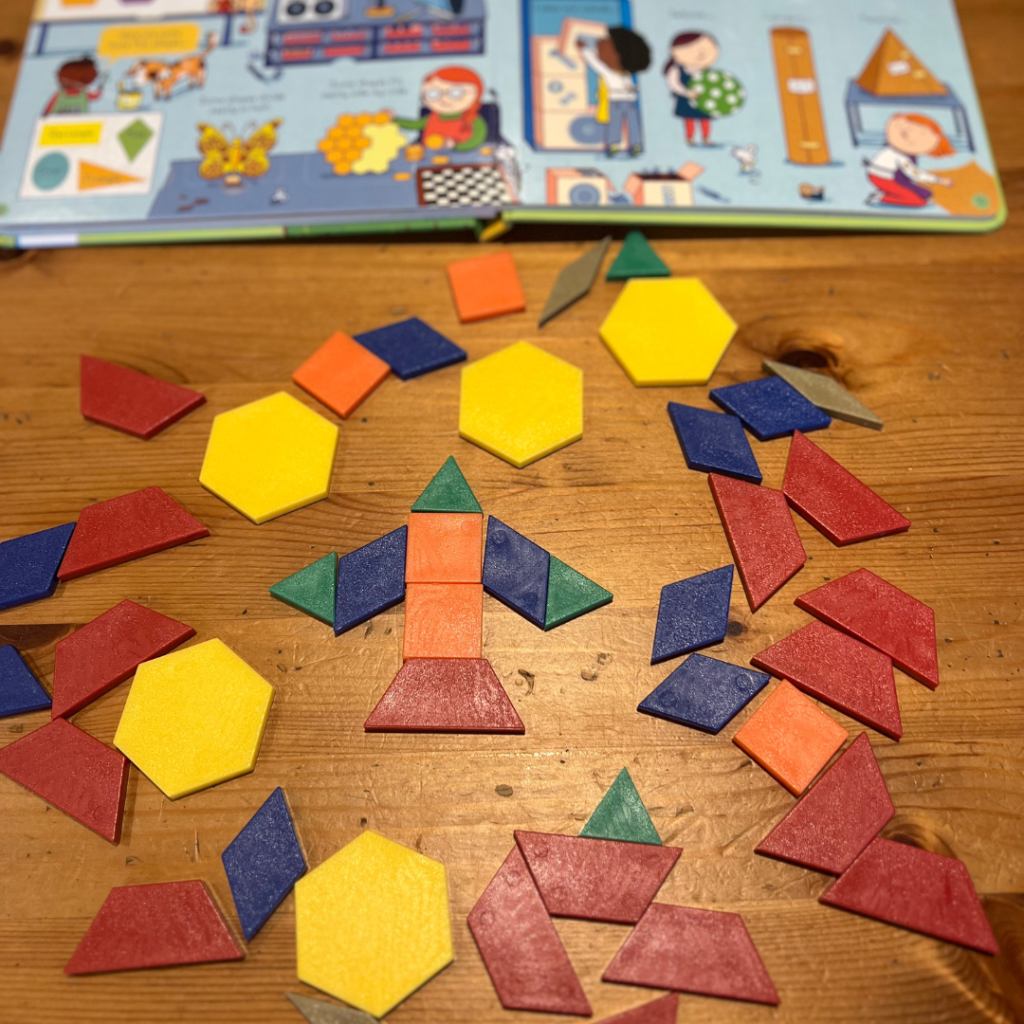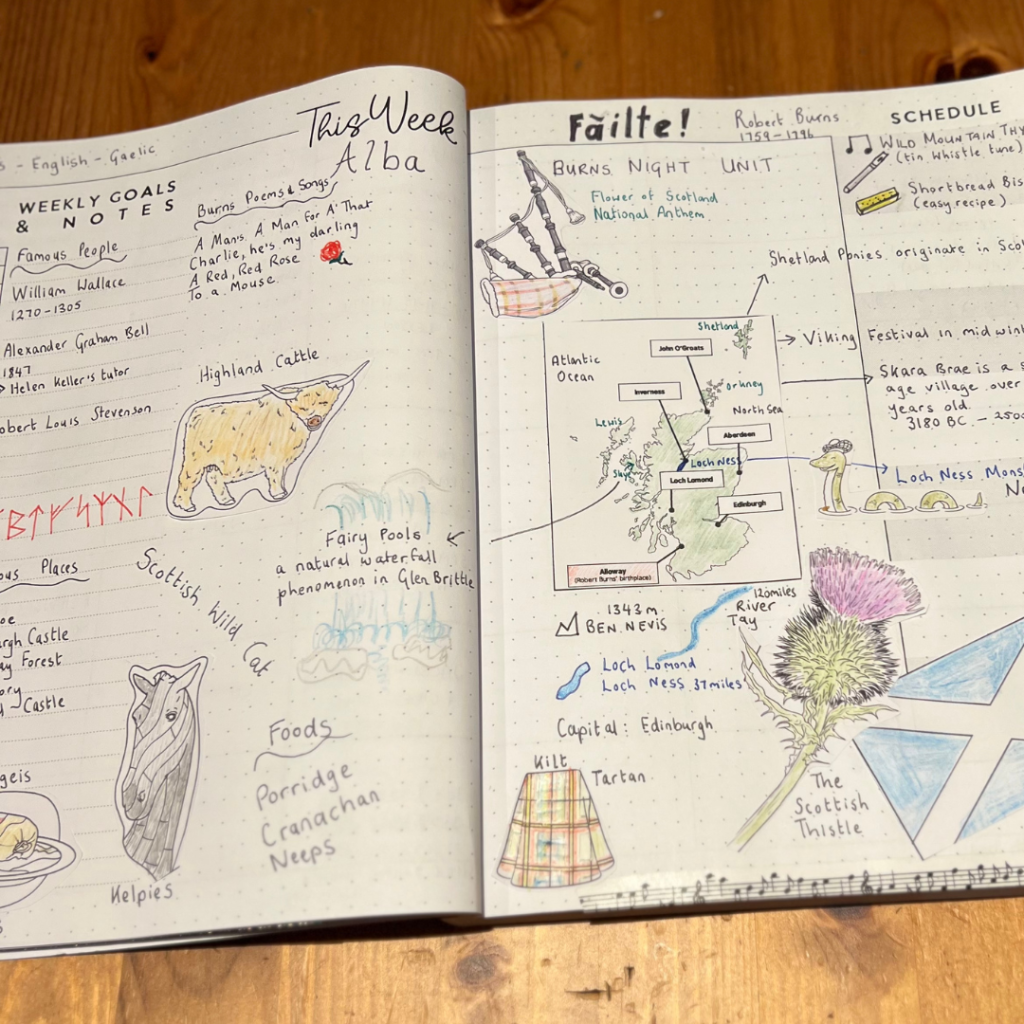There are so many topics you can choose from when designing and creating a unit study. Perhaps you could create a unit study focused on your child’s passions and interests, their pets or even a favorite book series.
A unit study can last from as little as a few days to a month or a term and it can cover many subjects. The length of your unit study will determine how in-depth you can go with a particular topic.
A unit study is an educational approach that focuses on a specific topic, theme, or subject area, integrating various subjects like math, science, history, and language arts into a cohesive learning experience. Instead of teaching each subject separately, a unit study allows students to explore a topic in depth, making connections across different disciplines.
For example, a unit study on “Ocean Life” might include reading books about marine animals, studying oceanography in science, calculating ocean depths in math, and writing stories about underwater adventures in language arts.
Some Unit Studies We Have Enjoyed
If you need some ideas to get you started then check out this list of unit study ideas:
History
- Ancient Civilizations
- Ancient Egypt: Pharaohs, Pyramids, and Hieroglyphics
- Ancient Greece: Mythology, Olympics, and Democracy
- Ancient Rome: Gladiators, Roman Law, and Engineering
- Middle Ages
- Medieval Europe: Knights, Castles, and Feudal System
- The Byzantine Empire: Art, Architecture, and Religion
- The Islamic Golden Age: Science, Medicine, and Culture
- Modern History
- The Renaissance: Art, Inventions, and Exploration
- The American Revolution: Key Figures, Battles, and Documents
- World War II: Causes, Major Events, and Outcomes
Geography
- Physical Geography
- Landforms: Mountains, Rivers, and Deserts
- Climate Zones: Tropical, Temperate, and Polar
- Natural Disasters: Earthquakes, Volcanoes, and Tsunamis
- Human Geography
- Population Studies: Demographics, Migration, and Urbanisation
- Cultural Geography: Languages, Religions, and Traditions
- Economic Geography: Resources, Industries, and Trade
- Regional Studies
- Africa: Wildlife, Cultures, and History
- Asia: Major Countries, Traditions, and Innovations
- South America: Rainforests, Civilizations, and Modern Nations
Science
- Life Science
- Biology: Cell Structure, Genetics, and Ecosystems
- Zoology: Animal Classification, Habitats, and Adaptations
- Botany: Plant Anatomy, Photosynthesis, and Growth
- Physical Science
- Physics: Forces, Energy, and Motion
- Chemistry: Elements, Compounds, and Reactions
- Astronomy: Planets, Stars, and Galaxies
- Earth Science
- Geology: Rocks, Minerals, and Earth’s Layers
- Meteorology: Weather Patterns, Clouds, and Climate
- Oceanography: Ocean Currents, Marine Life, and Ecosystems
Literature and Language Arts
- Poetry: Forms, Famous Poets, and Analysis
- A.A. Milne: “When We Were Very Young” and “Now We Are Six,”
- Robert Louis Stevenson: “A Child’s Garden of Verses”
- Roald Dahl: “Revolting Rhymes” and “Dirty Beasts”
- World Literature
- Greek and Roman Mythology
- Shakespearean Works
- Modern World Literature
Arts and Music
- Visual Arts
- Drawing: Techniques, Tools, and Styles
- Painting: Watercolor, Acrylic, and Oil
- Art History: Movements, Artists, and Masterpieces
- Music
- Music Theory: Notes, Scales, and Chords
- Instruments: Types, Playing Techniques, and Maintenance
- Music History: Composers, Eras, and Genres
- Performing Arts
- Theater: Acting, Directing, and Stagecraft
- Dance: Ballet, Modern, and Cultural Dances
- Film Studies: Cinematography, Genres, and Analysis
Practical Skills
- Home Economics
- Cooking: Nutrition, Recipes, and Techniques
- Sewing: Hand Stitches, Machine Sewing, and Projects
- Budgeting: Money Management, Saving, and Planning
- Technology
- Computer Science: Basic Programming, Robotics, and Internet Safety
- Digital Literacy: Using Software, Online Research, and Digital Communication
- Life Skills
- Critical Thinking: Problem Solving, Logic Puzzles, and Decision Making
- First Aid: Basic Medical Knowledge, Emergency Response, and Health Practices
- Personal Development: Goal Setting, Time Management, and Self-Care
Social Studies
- Civics and Government
- Government Systems: Democracy, Monarchy, and Dictatorship
- Citizenship: Rights, Responsibilities, and Civic Engagement
- Law: Legal Systems, Court Structures, and Landmark Cases
- Economics
- Microeconomics: Supply and Demand, Market Structures, and Consumer Behavior
- Macroeconomics: National Economy, Inflation, and Unemployment
- Personal Finance: Saving, Investing, and Budgeting
- Cultural Studies
- World Religions: Beliefs, Practices, and Histories
- Traditions and Holidays: Cultural Celebrations, Festivals, and Customs
- Global Issues: Poverty, Environment, and Human Rights
STEM (Science, Technology, Engineering, and Mathematics)
- Engineering
- Simple Machines: Levers, Pulleys, and Gears
- Construction: Building Materials, Design, and Architecture
- Innovation: Famous Inventors, Inventions, and Patents
- Technology
- Robotics: Building, Programming, and Controlling Robots
- Coding: Basics of Programming Languages, Algorithms, and Projects
- Tech Innovations: History of Computers, Future Technologies, and Ethical Considerations
Environmental Studies
- Ecology
- Ecosystems: Biomes, Food Chains, and Biodiversity
- Conservation: Endangered Species, Protected Areas, and Sustainable Practices
- Climate Change: Causes, Effects, and Mitigation Strategies
- Sustainable Living
- Renewable Energy: Solar, Wind, and Hydropower
- Waste Management: Recycling, Composting, and Reduction
- Green Living: Eco-friendly Practices, Products, and Lifestyles
- Natural Resources
- Water Resources: Watersheds, Aquifers, and Conservation
- Forestry: Types of Forests, Management, and Preservation
- Agriculture: Farming Techniques, Crop Rotation, and Sustainable Farming
Some more Unit Studies that we have undertaken include:
Let me know what you are studying next in the comments.







There are two subjects I would like to study, one is languages, preferably Modern Greek and the other mathematics.